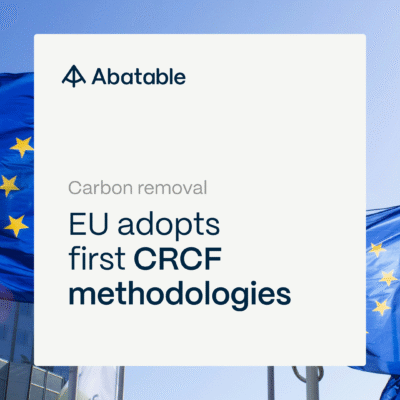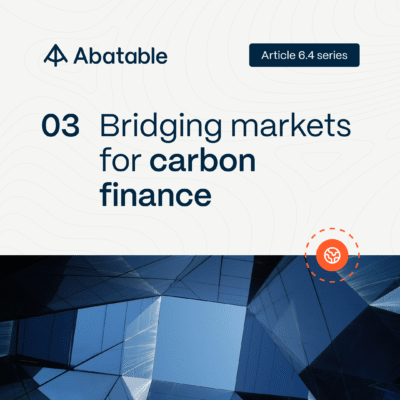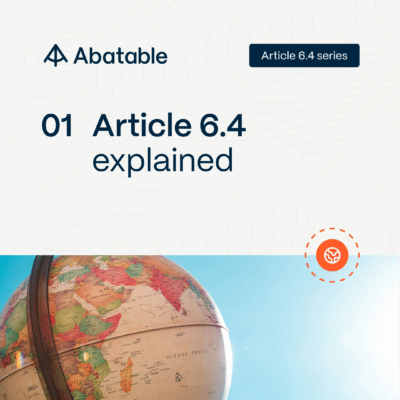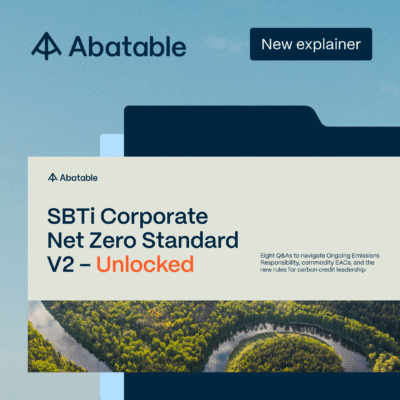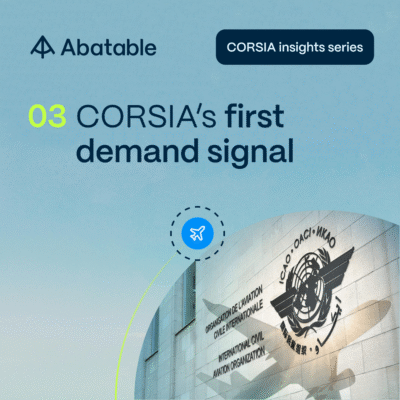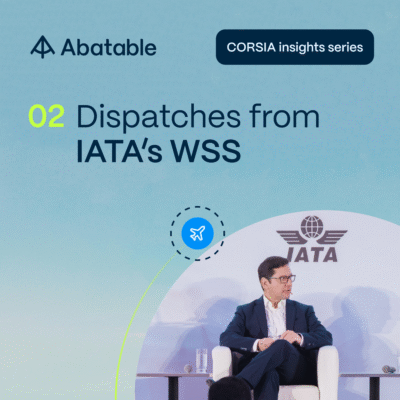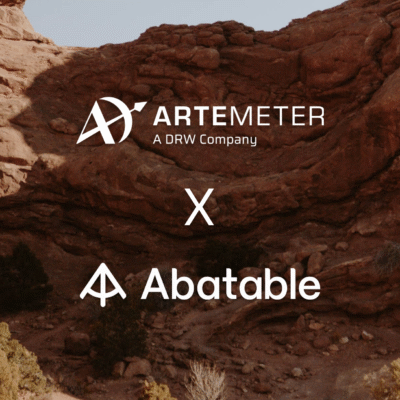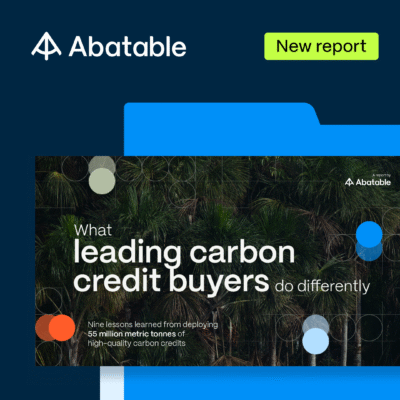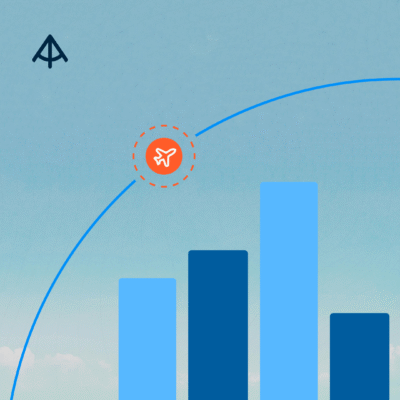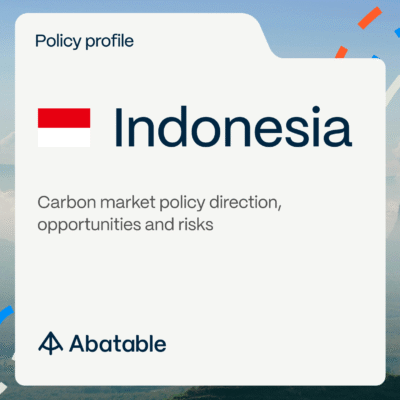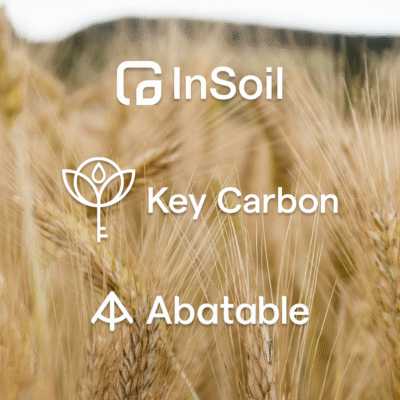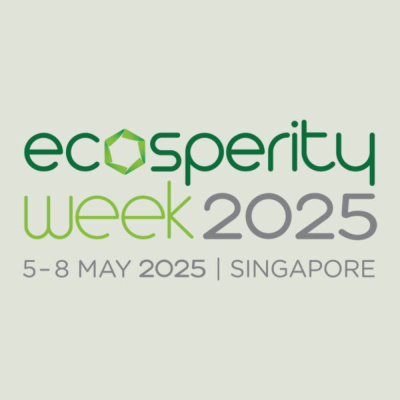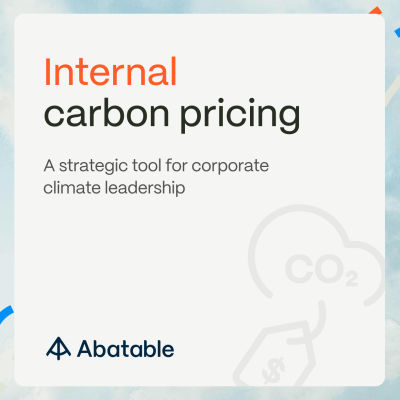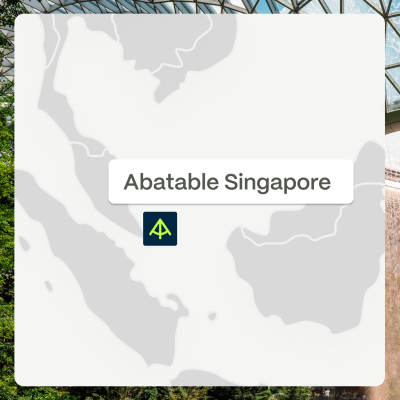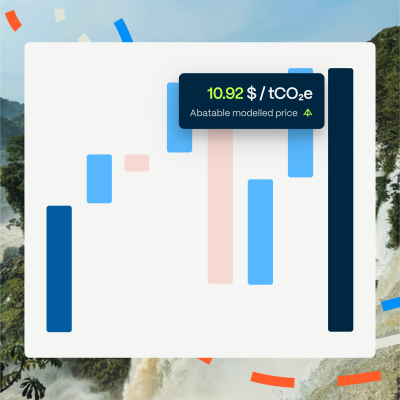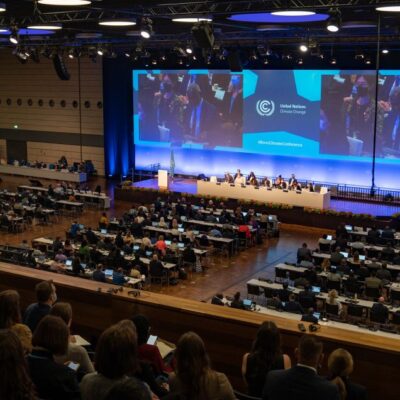Last week Abatable’s team attended Ecosperity Week 2025, the premier sustainability conference in APAC. Here, our new Head of Carbon Solutions APAC Bryan McCann gives his main takeaways from the event.
Ecosperity Week is a major annual sustainability conference and platform convened by Temasek, the global investment company. Now, in its 11th year, the week-long event commencing 5 May brought together global policymakers, investors, and companies at the intersection of decarbonisation in Asia. Events in and around Ecosperity Week, including the GenZero Climate Summit, have a significant focus on carbon markets.
Asia is home to the world’s largest population and two of the three largest carbon emitters globally. While Singapore, as a small country, cannot itself drive global decarbonisation, it can still play a crucial role as a decarbonisation hub for the region.
Abatable and APAC
Abatable’s Opportunity for Carbon Markets in ASEAN report published last year, in collaboration with the ASEAN Alliance on Carbon Markets (AACM), finds that continuing to develop carbon markets in ASEAN could unlock a cumulative revenue of $3tn for the region by 2050. This equates to the reduction or removal of emissions equivalent to 1.1 gigatonnes of CO2 by the same date.
Jermaine Loy, Managing Director of the Singapore Economic Development Board, cited Abatable’s findings on the first day of the GenZero Climate Summit 2025 as he announced a series of project development grants to develop projects under Article 6 of the Paris Agreement. Through this programme, developers like The Nature Conservancy (TNC), 3Degrees, and Climate Bridge International will launch projects in countries that Singapore is collaborating with to fund emissions reductions to help both host countries and Singapore meet their Paris Agreement Nationally Determined Contributions (NDCs).
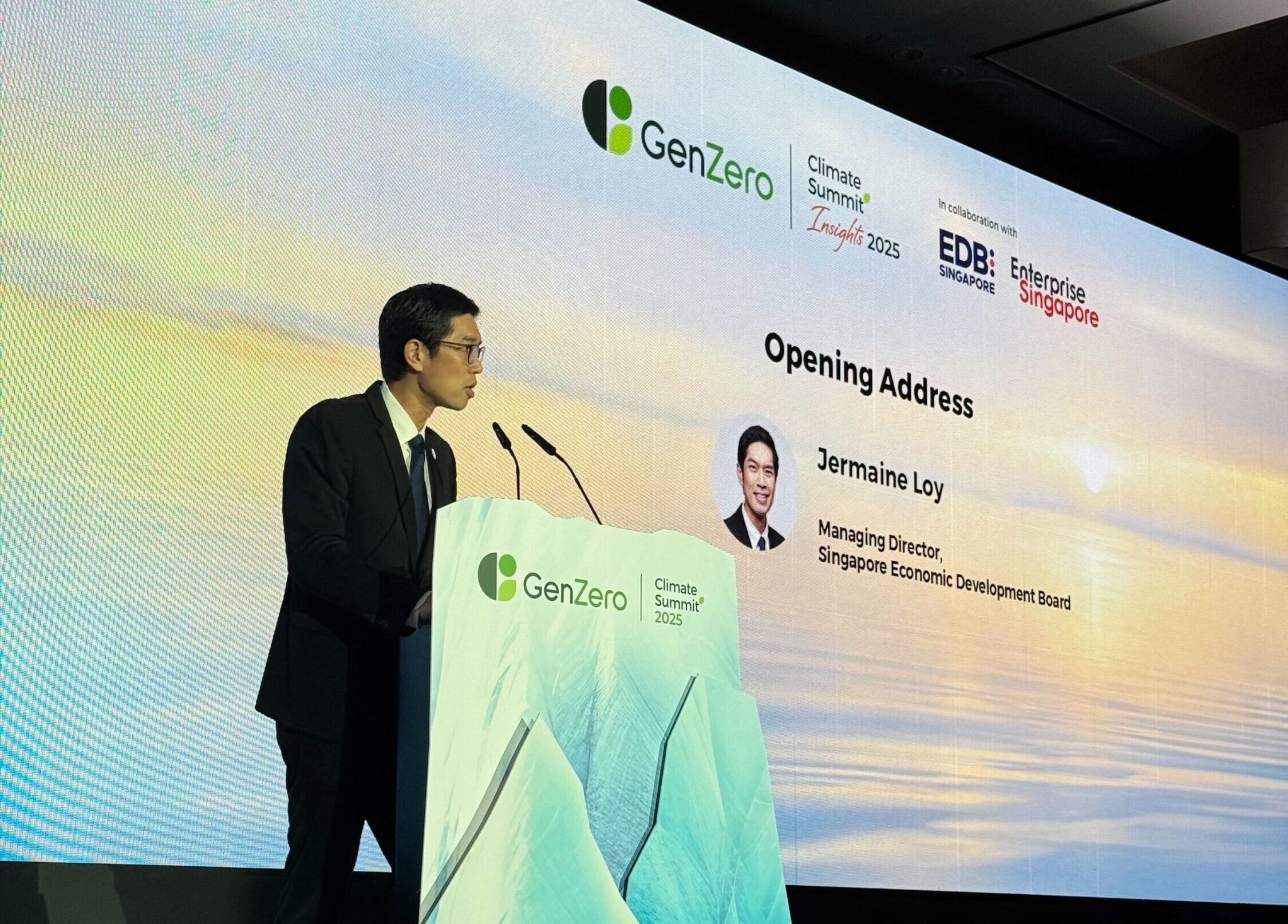
Jermain Loy, Managing Director, Singapore Economic Development Board giving the opening address of the GenZero Climate Summit 2025
Singapore’s carbon tax and Article 6 Implementation
These grants will further propel Singapore’s leadership in Article 6 implementation. Singapore has now signed Implementation Agreements with six countries: Rwanda (signed during Ecosperity Week 2025), Chile, Papua New Guinea, Bhutan, and Ghana, and has MOUs with dozens more. Under these agreements, large emitters in Singapore will be able to offset up to 5% of their Singapore carbon tax obligations with eligible credits. The carbon tax is currently S$25 (US$19.2), and will rise to S$45 in 2026 and 2027 and S$50-80 in 2028 beyond.
The carbon tax covers about 50 manufacturing, power, waste, and water facilities making up roughly 70% of Singapore’s emissions in total. Eligible credits need to tick three boxes:
- Issued under a ‘white list’ of approved standards and methodologies, largely aligned with those under the ICAO CORSIA programme for offsetting aviation emissions
- From a host country with which Singapore has an Implementation Agreement
- Approved by a joint committee comprising representatives from Singapore and the host country as part of a multi-stage process, which also includes authorisation for sale as Internationally Traded Mitigation Outcomes (ITMOs)
While the approval process is complex, the first projects are winding their way through the system. As part of a closed-door session convened by the Singapore Carbon Markets Association, the Abatable team learned that the first 11 projects in Ghana have made it past the first of four approval stages and are expected to issue eligible units by early 2026.
The Singapore carbon tax and the use of international credits provide a clear incentive to companies in Singapore to decarbonise and boost global carbon markets. While Singapore itself will not drive a huge amount of demand – the 5% tax offset programme is estimated to lead to just 1-2mn tonnes of international demand per year – it nonetheless provides a useful framework and blueprint for other buyer countries to develop similar programmes and supports host governments in operationalising their approaches to sale of international carbon credits.
Overcoming paralysis and scaling voluntary demand
Singapore has also played an important role in convening multiple initiatives to use carbon markets to fund decarbonisation. Two themes stood out to the Abatable team.
The first was focused on transition credits, which fund the early closure of coal-fired power plants and their replacement with renewable energy. On 7 May Mitsubishi joined Singapore’s Keppel and GenZero to fund a Philippine coal plant operated by ACEN. In addition, the Rockefeller Foundation, which has been supporting a similar effort, announced the Kinetic Coalition, a buyer’s club for transition credits. And last but not least, Verra, the leading voluntary standards organisation, has launched a methodology for such credits.
The second was the leadership role GenZero, the Temasek-backed $5bn investment platform, is taking to scale the market. GenZero launched a call to action co-signed with 24 non-state actors, listing five priorities to strengthen high-integrity carbon markets. In addition, GenZero also announced an MOU with Tencent to purchase at least one million tonnes from GenZero’s portfolio over 15 years. Tencent, the Chinese tech giant behind apps such as WeChat, has emerged as a major buyer in carbon markets, and provides an important signal that carbon credits are a global tool and not solely the purview of American tech giants.
Scaling a carbon market hub
Beyond direct action from state-linked companies, Singapore has also invested in drawing market participants to the city-state. This is reflected by both our announcement of our Singapore office opening on 1 May and by the plethora of side conferences run under the Ecosperity Week banner, including:
- GenZero’s two-day carbon markets summit;
- Financing Asia’s Transition (FAST) from Blackrock, the Monetary Authority of Singapore (MAS) and Temasek;
- a conference for corporate members of WBCSD;
- the Philanthropy Asia Summit (featuring Bill Gates) from the Temasek Trust;
- and a half-day event on market infrastructure from S&P.
This selection illustrates the range of tools needed – from philanthropy to finance – to accelerate combatting climate change.
For Abatable, our focus is growing corporate funding for climate action through carbon credits. Our recent report on Internal Carbon Pricing gives companies six actionable insights on quantifying the cost of their emissions. Additionally, our flagship annual Decoding the VCM 2024 report indicates how corporate demand is evolving: for example, recent quality initiatives are having an impact, with Abatable’s carbon credit pricing data indicating that CCP-labelled credits are commanding an up to $10 price premium in the market.
Demand and supply; complexity and fragmentation
Asia is not a monolith. Some countries like Singapore and Japan will play a leading role in providing demand and finance for climate action, and others like Indonesia and Cambodia offer a range of opportunities to protect nature and support communities.
Indeed, Cambodia ranks 3rd in Abatable’s VCM Investment Index. Indonesia, despite a moratorium on new credit issuance in place since the start of 2022, on 8 May announced a Mutual Recognition Agreement with Gold Standard. Projects in Indonesia will be able to continue or begin certification under Gold Standard (provided they comply with all other applicable regulations).
Through its work with AACM, Abatable hopes to contribute to some harmonisation across rules in different supply jurisdictions, though recognising that each country retains autonomy in how they regulate the sector and balance the need for investment with meeting their Paris Agreement goals.
For demand, while Singapore has taken the lead in laying out a clear approach for the import of credits, countries like Japan (a much bigger economy) are following their own pathway. It is expected that mandatory emissions trading under the GX League will come into effect in 2026 and allow for some import of credits from countries operating under the Joint Crediting Approach (JCM). In this way, the JCM is similar to the Singapore carbon tax.
A key difference, however, is that rather than allowing existing standards, JCM requires country-specific methodologies to be developed and approved by the Japanese government. Philippine rice credits require a new Philippine JCM methodology. These are just two examples, and other countries like South Korea or international programmes like CORSIA are developing their own unique requirements.
Conclusion
International markets are likely to continue to oscillate between standardisation and fragmentation, between countries developing their own bespoke solutions and collaborating to harmonise approaches. Singapore will likely continue its role as the key carbon hub in Asia, if not globally, and provide a model for Article 6 implementation.
Investment will continue to happen – estimated at $16.3 billion in 2024 – while in parallel clarity will emerge on how and when buyers should purchase.
Abatable, as a procurement partner to credit buyers, has the platform and expertise to help buyers navigate this complexity. Our policy team has developed profiles for over 30 host jurisdictions, and our origination team tracks over 13,000 projects globally.
Reach out today to see how Abatable can help decode the market and continue to help you accelerate your sustainability strategy and contribute to climate action.



